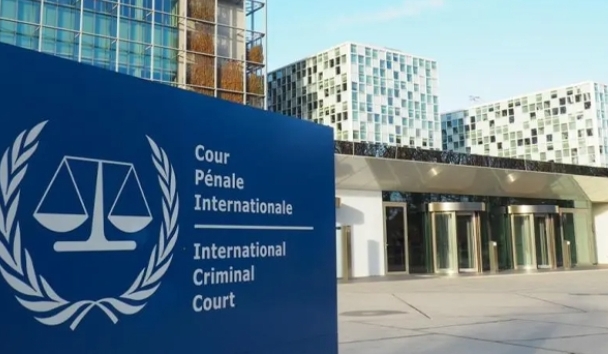The EU condemned U.S. sanctions on four ICC judges and backed the court's independence, while Slovenia urged Europe to block the sanctions’ enforcement.
EU Condemns U.S. Sanctions on ICC Judges, Slovenia Calls for Block


The European Union voiced strong support for the International Criminal Court (ICC) on Friday following the United States' decision to impose sanctions on four ICC judges. Slovenia, an EU member state, stated it would push Brussels to take steps to prevent these sanctions from being enforced within Europe.
"The ICC holds perpetrators of the world’s gravest crimes to account and gives victims a voice. It must be free to act without pressure," European Commission President Ursula von der Leyen posted on social media platform X.
Antonio Costa, President of the European Council, which represents the national governments of the 27 EU member states, called the ICC “a cornerstone of international justice” and stressed that its independence and integrity must be protected.
The sanctions were issued by the administration of U.S. President Donald Trump in response to the ICC’s decision to issue arrest warrants for Israeli Prime Minister Benjamin Netanyahu and former defense minister Yoav Gallant, as well as its earlier decision to investigate alleged war crimes committed by U.S. troops in Afghanistan.
The U.S. named four judges in the sanctions order: Solomy Balungi Bossa of Uganda, Luz del Carmen Ibanez Carranza of Peru, Reine Adelaide Sophie Alapini Gansou of Benin, and Beti Hohler of Slovenia.
As a result of the sanctions, the judges are now designated as specially sanctioned individuals. Any assets they hold in the United States are to be frozen, and their names are placed on an automated screening system used not only by American financial institutions but also by banks around the world. This designation significantly restricts their ability to open or maintain bank accounts or conduct financial transactions internationally.
Trump’s original order also stated that any U.S. citizen who provides services for the benefit of those sanctioned could face civil and criminal penalties.
Slovenia has called on the EU to activate its blocking statute, a regulation that empowers the EU to prohibit European companies from complying with foreign sanctions it deems unlawful. This legal tool has been used in the past to counter U.S. sanctions targeting European trade with countries such as Cuba and Iran.
"Due to the inclusion of a citizen of an EU member state on the sanctions list, Slovenia will propose the immediate activation of the blocking act," the Slovenian foreign ministry posted on X late Thursday.
In fact, back in March, ICC President Judge Tomoko Akane had already appealed to the EU to include the ICC under the protection of the blocking statute.
The new sanctions come at a particularly challenging moment for the ICC. The court is still reeling from earlier U.S. sanctions imposed on its chief prosecutor, Karim Khan, who stepped aside temporarily last month amid a United Nations investigation into alleged sexual misconduct.
On Friday, the court’s governing body—which represents its 125 member states—strongly condemned the U.S. government’s retaliatory actions against the ICC judges.
“These... are regrettable attempts to impede the Court and its personnel in the exercise of their independent judicial functions,” stated the Presidency of the Assembly of States Parties.

 বাংলা
বাংলা  Spanish
Spanish  Arabic
Arabic  French
French  Chinese
Chinese 
